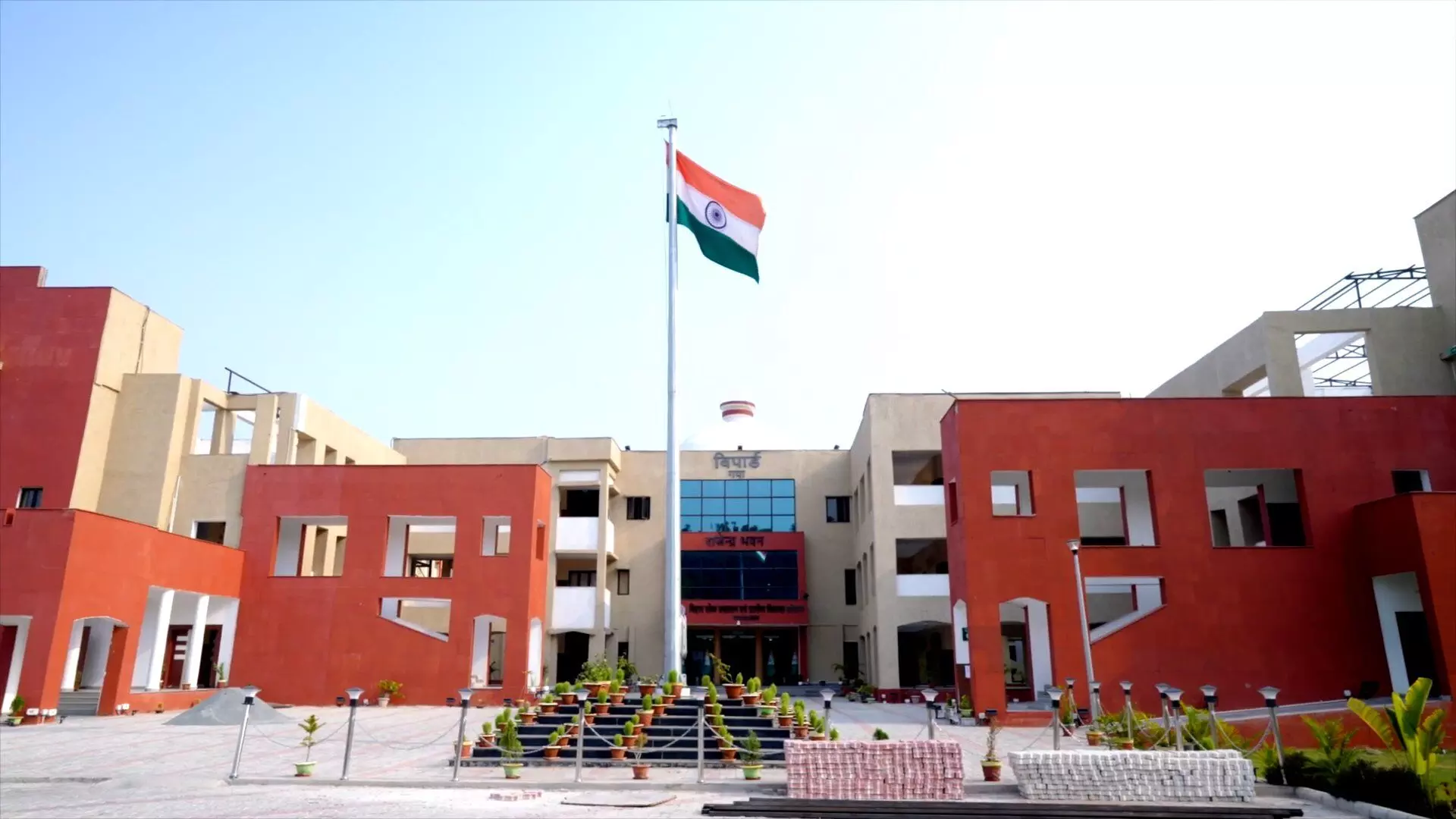CM Nitish Kumar's Vision Transforms Bihar: BIPARD Ushers in a New Era of Data-Driven Governance with the Inauguration of GenNext Lab

The Bihar Government under the leadership of Chief Minister Nitish Kumar is continuously striving to bring innovation in the administrative system of the state through modern technology with progressive thinking. To make this effort of the Chief Minister a reality, The Bihar Institute of Public Administration and Rural Development (BIPARD) is set to usher in a new era of data-driven governance with the inauguration of its state-of-the-art GenNext Lab. Slated for launch on October 8th by B.V.R. Subrahmanyam, CEO of NITI Aayog, this lab represents a pivotal advancement in the governance landscape of Bihar. Its integration of real-time data and predictive analytics will revolutionize decision-making processes across public administration and rural development, equipping the state to navigate future challenges with agility and foresight. Alongside this, the inauguration will also witness the launch of the Viksit Chintan Kaksh and Nitishala, further augmenting Bihar's commitment to innovation in governance. Together, these initiatives will serve as key tools in sharing Bihar's success stories and best practices with other states across India.
The GenNext Lab, a pioneering initiative in Indian governance, positions BIPARD at the forefront of administrative innovation. By leveraging cutting-edge AI and data-driven technologies, policymakers and administrative officers can easily interpret complex data, enabling more informed, strategic, and timely decisions. At the heart of the lab is a sophisticated Decision Support System (DSS), designed to assist policymakers with AI-powered predictive forecasting. This capability allows decision-makers to anticipate trends, foresee potential challenges, and implement proactive solutions, particularly in sectors like rural development, where timely intervention can have profound effects.
In addition to providing predictive analytics, the lab will offer a comprehensive repository of simulations, case studies, and best practices, creating an immersive learning environment for both policymakers and trainees. This hands-on approach ensures that governance in Bihar transitions from a reactive to a forward-thinking model, equipped to respond to challenges even before they arise.
Complementing the GenNext Lab, the Viksit Chintan Kaksh will serve as a strategic convergence space for high-level policy deliberations. Designed to foster collaboration among government officials and decision-makers, this state-of-the-art facility is equipped with the latest communication and data-sharing tools. It will enable in-depth discussions on policy reform, ensuring that decisions are innovative yet grounded in practical insights. The Kaksh will play a key role in shaping Bihar's development strategy, facilitating the exchange of ideas that drive transformative governance.
Meanwhile, Nitishala, an immersive learning lab, bridges the gap between theoretical governance concepts and real-world applications. This lab provides officer trainees with an experiential learning environment tailored to Bihar's specific governance challenges through advanced simulations and interactive governance scenarios. Local case studies, short films, and hands-on simulations will ensure that trainees are equipped to apply theoretical knowledge to practical situations, enhancing their ability to address the unique challenges of governance in the region.
These three cutting-edge initiatives are part of BIPARD’s larger “Deep Knowledge and Intelligence Corridor,” a visionary effort to transform governance training through the integration of technology, collaboration, and immersive learning. Together, they represent a paradigm shift in how governance is taught, understood, and implemented in Bihar, establishing BIPARD as a leader in governance training across India.
At the core of these innovations lies a commitment to data intelligence, empowering district and state-level officials to visualize and interpret vast amounts of real-time data. This will be crucial for understanding the interconnectedness of various sectors, including health, education, agriculture, environment, women’s empowerment, and rural development. Policymakers will gain a holistic view of these sectors, allowing them to craft policies that are not only reactive but preemptive—anticipating challenges before they escalate.
For instance, administrators will be able to identify correlations between agricultural productivity and educational outcomes, or between healthcare access and rural economic development. These insights will be invaluable in crafting policies that address Bihar's multifaceted development challenges in a proactive, rather than reactive, manner. By integrating Viksit Chintan Kaksh and Nitishala into this broader framework, BIPARD will create an environment that nurtures high-level strategic thinking and hands-on learning.
The long-term vision for these labs extends beyond immediate governance. As Bihar continues to evolve, the GenNext Lab will serve as the cornerstone of a data-driven governance model, empowering policymakers to craft adaptive policies informed by real-time data and predictive analytics. This will not only enhance the relevance of governance decisions but will also provide Bihar with the tools needed to foresee and mitigate future challenges, such as climate change, population growth, and economic shifts.
The immediate benefits of this initiative will be felt in the form of enhanced decision-making capabilities, allowing Bihar’s governance framework to transition from reactive to forward-thinking. The ability to visualize and analyze data across sectors will streamline governance processes, improve resource allocation, and enhance the state’s crisis response capabilities. Additionally, the AI-powered predictive tools will enable policymakers to anticipate long-term challenges and opportunities, positioning Bihar at the cutting edge of governance innovation.
In the coming years, the GenNext Lab, Viksit Chintan Kaksh, and Nitishala are expected to serve as a model for other states, demonstrating how AI and data intelligence can be seamlessly integrated into governance structures for improved policy formulation, resource management, and overall development. The lessons learned from Bihar’s journey will be shared with other states, ensuring that the success of these initiatives has a lasting impact on governance across India.
With BIPARD leading this initiative, Bihar is taking a bold step towards future-proofing its governance. These innovations will not only empower Bihar to navigate present-day challenges with precision but will also prepare the state for the uncertainties of tomorrow. The GenNext Lab, Viksit Chintan Kaksh, and Nitishala are poised to bring transformative change to Bihar's governance, creating a framework where data-driven insights, AI-powered tools, and immersive learning converge to shape a more efficient, strategic, and forward-thinking administration.
